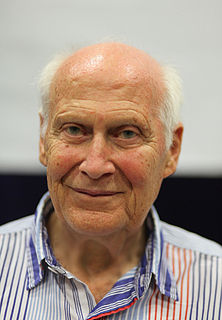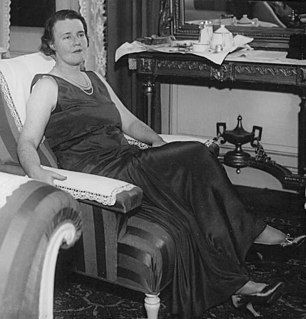A Quote by Herman Melville
If a well-constituted individual refrains from blazoning aught amiss or calamitous in his family, a nation in the like circumstance may without reproach be equally discreet.
Related Quotes
He was a foe without hate; a friend without treachery; a soldier without cruelty; a victor without oppression, and a victim without murmuring. He was a public officer without vices; a private citizen without wrong; a neighbor without reproach; a Christian without hypocrisy, and a man without guile. He was a Caesar, without his ambition; Frederick, without his tyranny; Napoleon, without his selfishness, and Washington, without his reward.
Whilst no people appears in history without the sign and palladium of a positive faith, without temple, altar, priesthood--that is to say, without a constituted religion--unbelief appears only under an individual form, sometimes proscribed, sometimes tolerated, seldom powerful, and never becoming established as the public and social expression of a nation.
When the family has been brought into its natural order, the individual can leave it behind him while still feeling the strength of his family supporting him. Only when the connection to his family is acknowledged, and the person's responsibility seen clearly and then distributed, can the individual feel unburdened and go about his personal affairs without anything from the past weighing him down or holding him back.
Nothing is text but what is spoken of in the Bible and meant there for person and place; the rest is application; which a discreet man may do well; but it is his scripture, not the Holy Ghost's. First, in your sermons use your logic, and then your rhetoric; rhetoric without logic is like a tree with leaves and blossoms, but no root.
All human life is sunk deep in untruth; the individual cannot pull it out of this well without growing profoundly annoyed with his entire past, without finding his present motives (like honor) senseless, and without opposing scorn and disdain to the passions that urge one on to the future and to the happiness in it.
.. free and responsible development of the individual, so that he may place his powers freely and gladly in the service of all mankind. There is no room in this for the divinization of a nation, of a class, let alone of an individual. Are we not all children of one father, as it is said in religious language?
England is a domestic country. Here the home is revered and the hearth sacred. The nation is represented by a family,--the Royal family,--and if that family is educated with a sense of responsibility and a sentiment of public duty, it is difficult to exaggerate the salutary influence it may exercise over a nation.
It is possible that an individual may be successful, largely because he conserves all his powers for individual achievement and does not put any of his energy into the training which will give him the ability to act with others. The individual acts promptly, and we are dazzled by his success while only dimly conscious of the inadequacy of his code.
I wish my countrymen to consider that whatever the human law may be, neither an individual nor a nation can ever commit the leastact of injustice against the obscurest individual without having to pay the penalty for it. A government which deliberately enacts injustice, and persists in it, will at length even become the laughing-stock of the world.







































